Conservative lead drops to 10 as past Liberal voters come home.
December 13, 2023
From December 7 to 12, 2023, Abacus Data conducted a national survey of 1,919 adults exploring several topics related to Canadian politics and current events as part of our regular national omnibus surveys.
Conservative lead over the Liberals drops to 10-points.
If an election were held today, 37% of committed voters would vote Conservatives with the Liberals at 27%, the NDP at 19% and the Greens at 5%. The BQ is at 33% in Quebec.
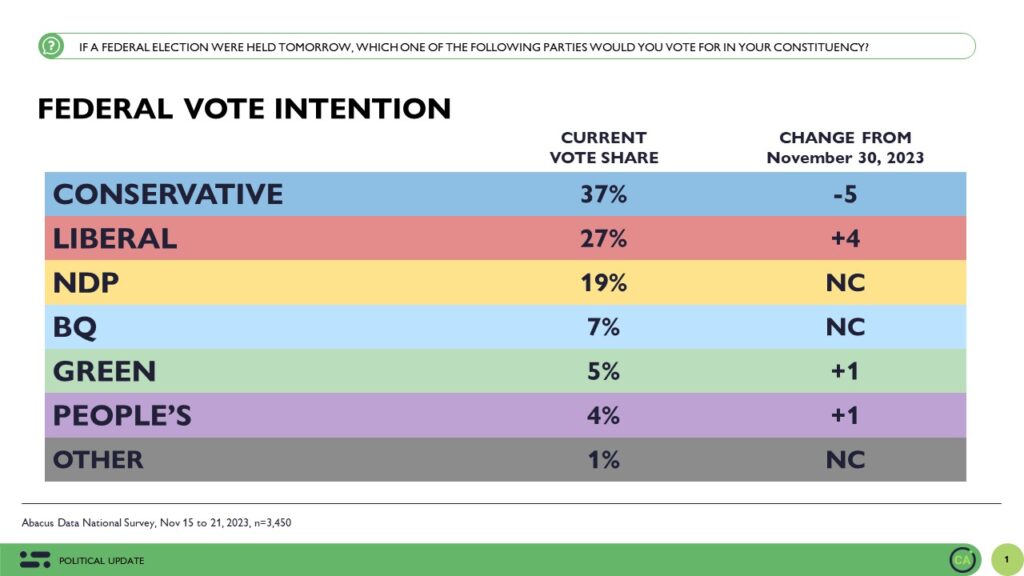
Since our last survey, the Conservatives are down 5 while the Liberals are up 4. This is a statistically significant shift in vote intentions since the end of November.
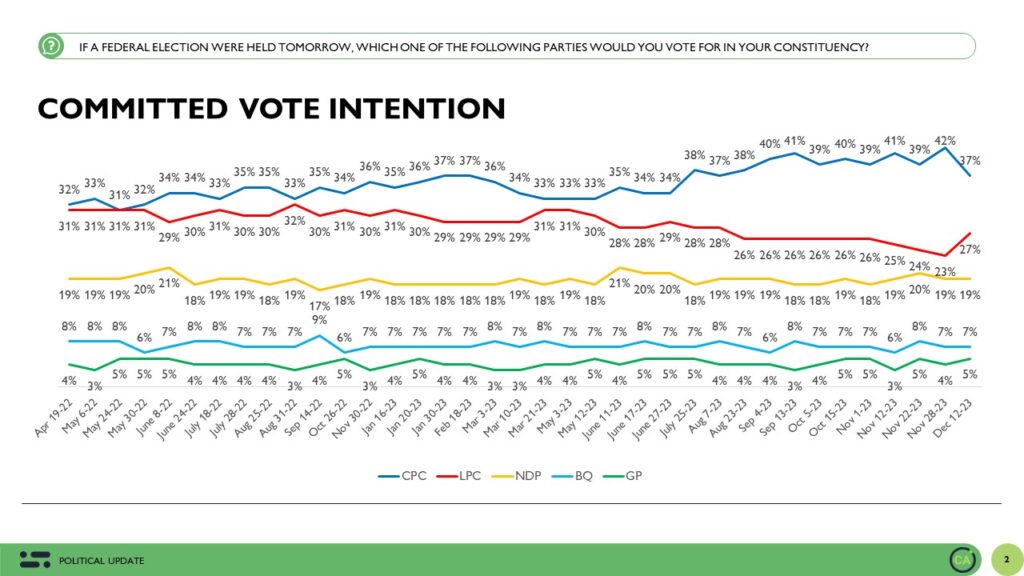
Regionally, the Conservatives are well ahead in the Prairies, lead by 10 in BC, and 9 in Ontario. In Atlantic Canada, the Conservatives are 8-points ahead of the Liberals while in Quebec, the BQ leads by 5 over the Liberals with the Conservatives at 21%.
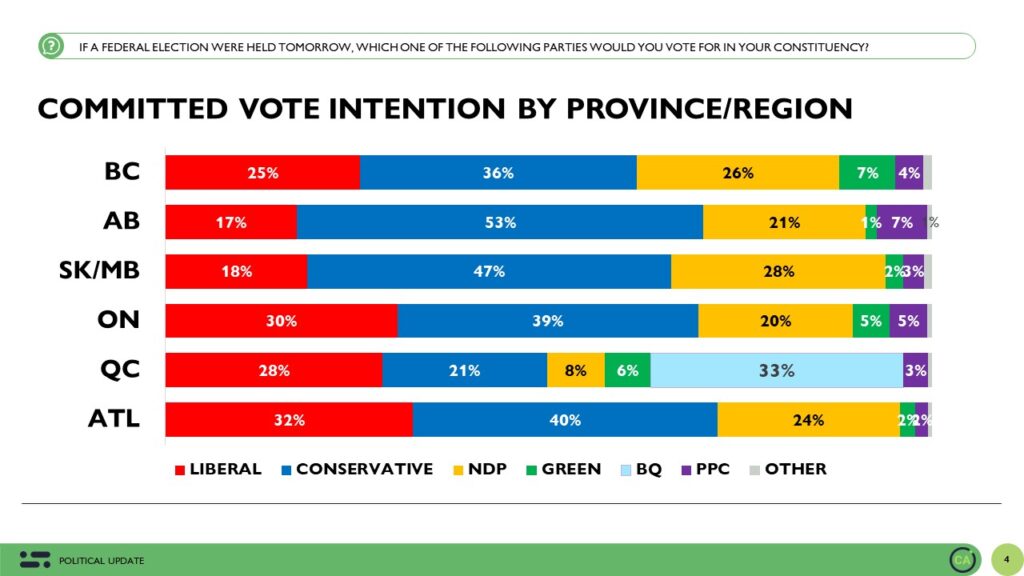
Introducing Abacus Data MRP A game-changing tool for GR, advocacy, and digital campaign targeting. A must for anyone in GR, campaigning, advertising, digital public affairs
Find out more
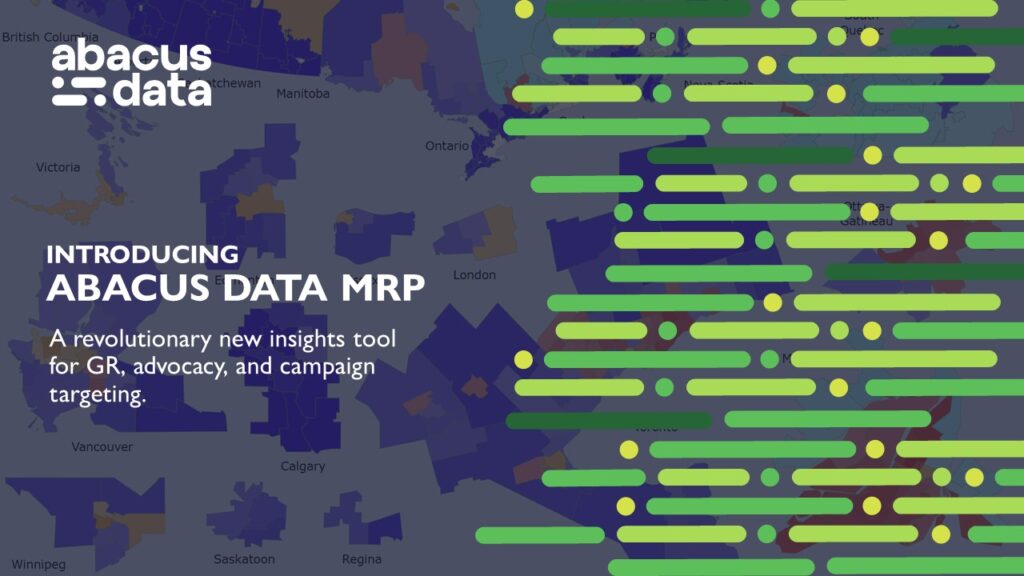
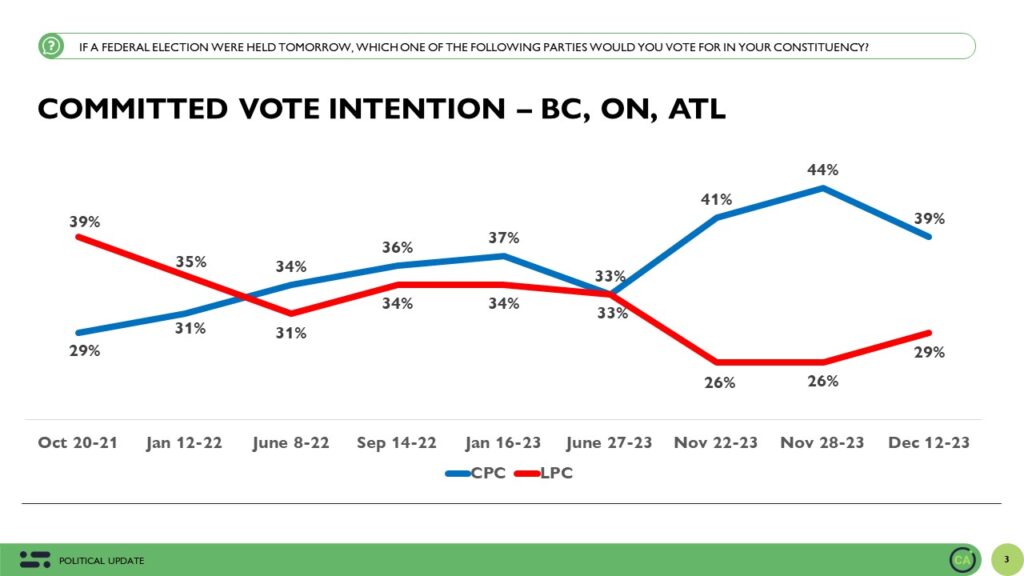
Demographically, the Conservatives lead among those aged 30 and over. Among the youngest cohort, the Liberals have opened up a 7-point lead over the Conservatives, gaining 8-points among younger Canadians.
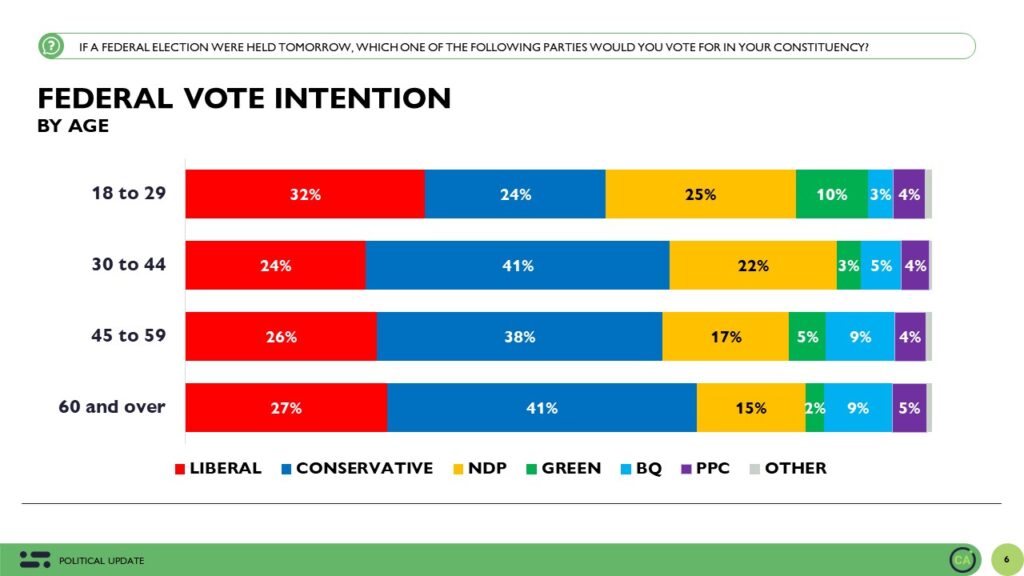
We find almost no difference in vote intention between men and women.
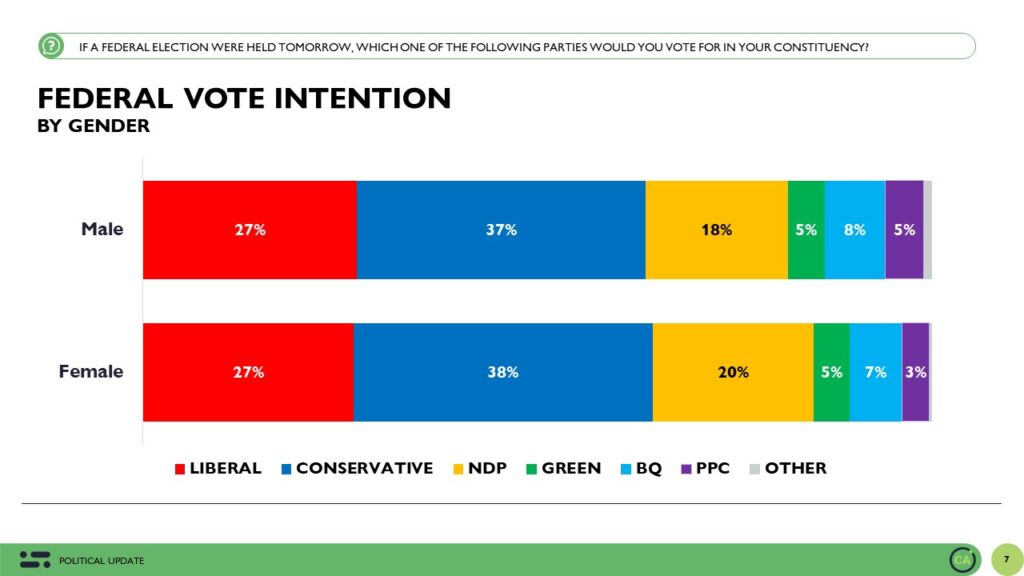
When we ask people if they would consider voting for each of the main political parties, 50% say they are open to voting Conservative (down 4 since November 28) while 43% are open to voting Liberal (+1), 41% NDP, 28% for the Greens, and 19% for the People’s Party. In Quebec, 49% say they are open to voting BQ.
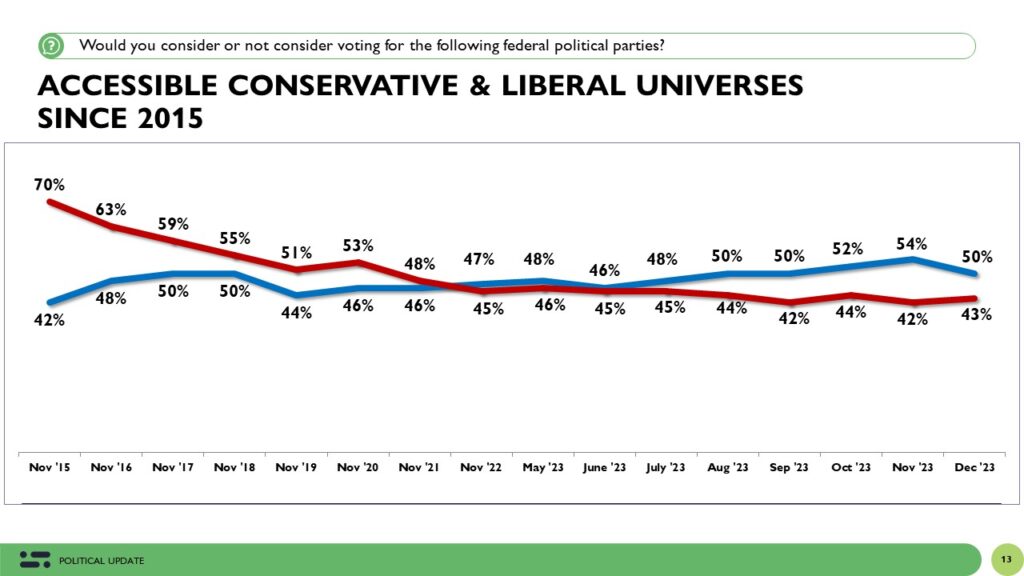
What explains the change in vote intention?
For there to be a 5-point drop in Conservative support and a 4-point rise in Liberal vote share, something must be happening around public opinion. The evidence from our survey suggests this shift is likely more about reaction to the Conservatives, and their decisions and behaviour over the past two weeks, than something the Liberals have been doing.
For example, we find that some core metrics for the Liberal government are largely unchanged. The mood of the country (direction of the country), the government’s approval rating, the desire for change, and the Prime Minister’s personal image are unchanged from last month.
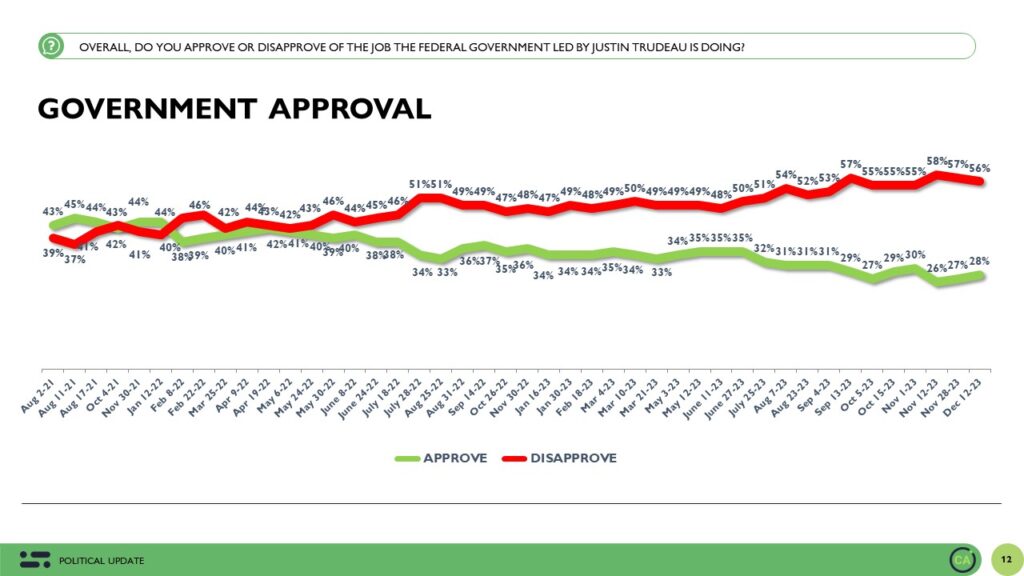
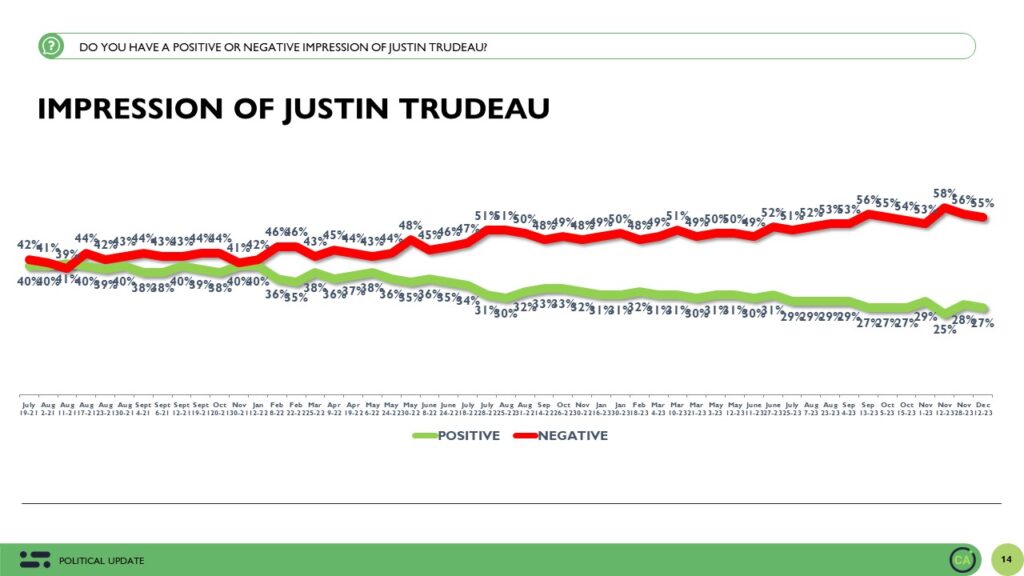
But other indicators related to the Conservatives and their acceptability to some soft change voters seems to explain the drop.
First, negative impressions of Pierre Poilievre are up three points since the end of November. Today, 36% have a favourable view of Mr. Poilievre while 36% have a negative impression.
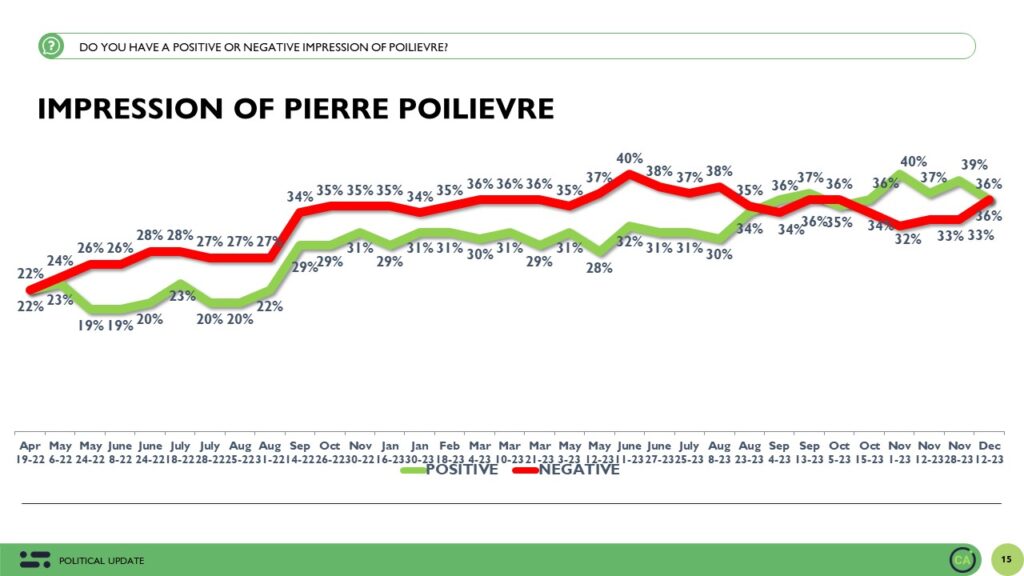
Second, as we’ve noted in the past, about 1 in 3 Canadians say they want a change in government but indicate feeling uncomfortable with any of the alternatives. This group has hovered around 32% of the electorate since July when we started asking this question.
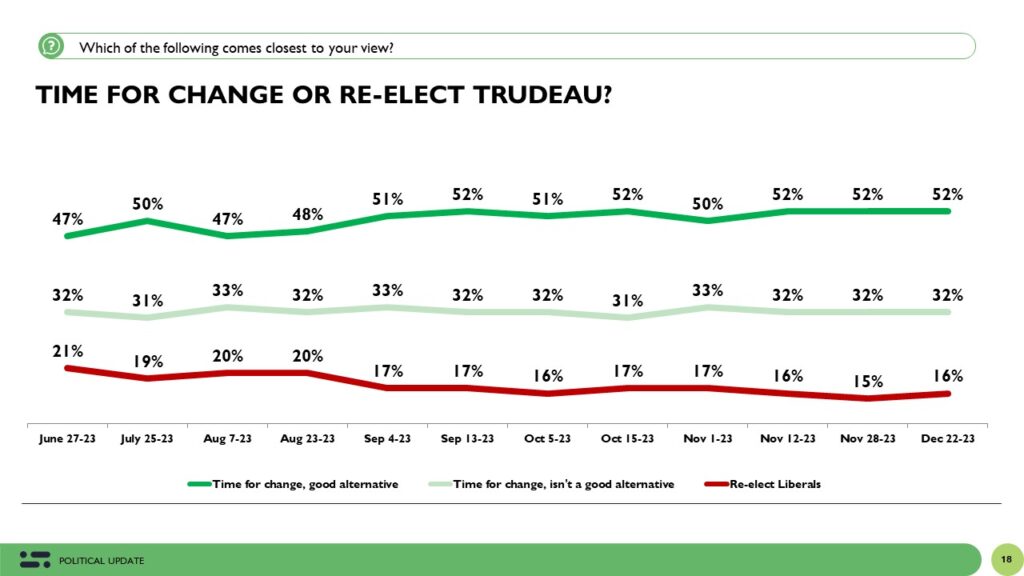
But it’s the vote intention of this group that is important to assess.
Back in November, among this “soft change” group, the Liberals and Conservatives were tied at 28% among thise group. Today, the Liberals have opened up a 16-point lead, gaining 8-points in two weeks. Something happened over the past two weeks to push these soft change voters back into the Liberal camp.
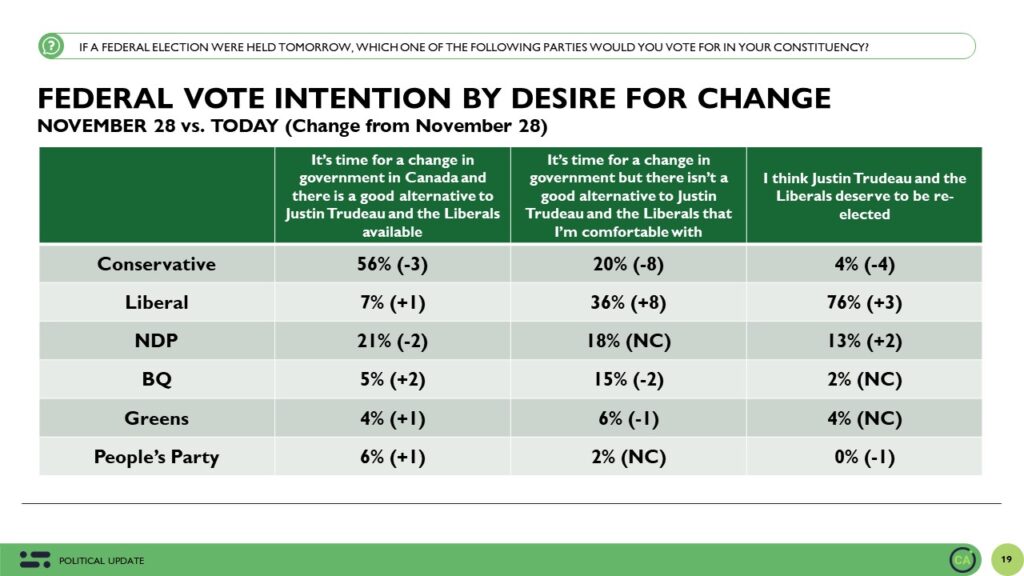
Third, we also see evidence that the Liberals have rebuilt some of their past voter coalition. At the end of November, 58% of those who said they voted Liberal in 2021 said they would vote Liberal again. 17% would vote Conservative while 9% would vote NDP. Today, 66% of past Liberal voters say they would vote Liberal again and only 7% would defect to the Conservatives. That’s a 10-point drop in Liberal/Conservative switchers which is equalivent to 2% of the electorate or 3% of decided voters. This explains most of the growth in Liberal support.
Finally, we also see some evidence that the 2021 Conservative voter group may be fragmenting. At the end of November, 89% of past Conservative voters said they would vote Conservative again. Today, that number is down to 83%. That shift represents about 2% of decided voters and makes up the remainder of the Conservative drop.
The Upshot
According to Abacus Data CEO David Coletto: “It appears that the Conservatives and Pierre Poilievre have made themselves less acceptable to these past Liberal supporters over the past few weeks and may have even aliented a small portion of their own past supporters pushing most back into the Liberal fold.
While the Conservatives still hold a sizeable 10-point lead, the likelihood they win a majority government is now up in the air, if voter intentions as we measure them today were to materialize on election day.
The results are a reminder that the electorate is very much in flux and while the desire for change and general dissatisfaction with the Liberal government and Mr. Trudeau remains deeply problematic for the Liberals, the Conservatives cannot assume that voters are not also evaluating the alternatives. As I’ve said from day one, a desire for change is not always sufficient for a government to be defeated. Enough voters also need to feel comfortable with an alternative.
These results suggest the Conservatives may have taken a step backwards in their mission to win a majority government but the fundamental problems facing the Liberals still remain.”
Want to join our team or know someone should?
We are looking to fill two roles as our company grows rapidly.
Methodology
The survey was conducted with 1,919 Canadian adults from December 7 to 12, 2023. A random sample of panelists were invited to complete the survey from a set of partner panels based on the Lucid exchange platform. These partners are typically double opt-in survey panels, blended to manage out potential skews in the data from a single source.
The margin of error for a comparable probability-based random sample of the same size is +/- 2.3%, 19 times out of 20.
The data were weighted according to census data to ensure that the sample matched Canada’s population according to age, gender, educational attainment, and region. Totals may not add up to 100 due to rounding.
This survey was paid for by Abacus Data Inc.
Abacus Data follows the CRIC Public Opinion Research Standards and Disclosure Requirements that can be found here: https://canadianresearchinsightscouncil.ca/standards/
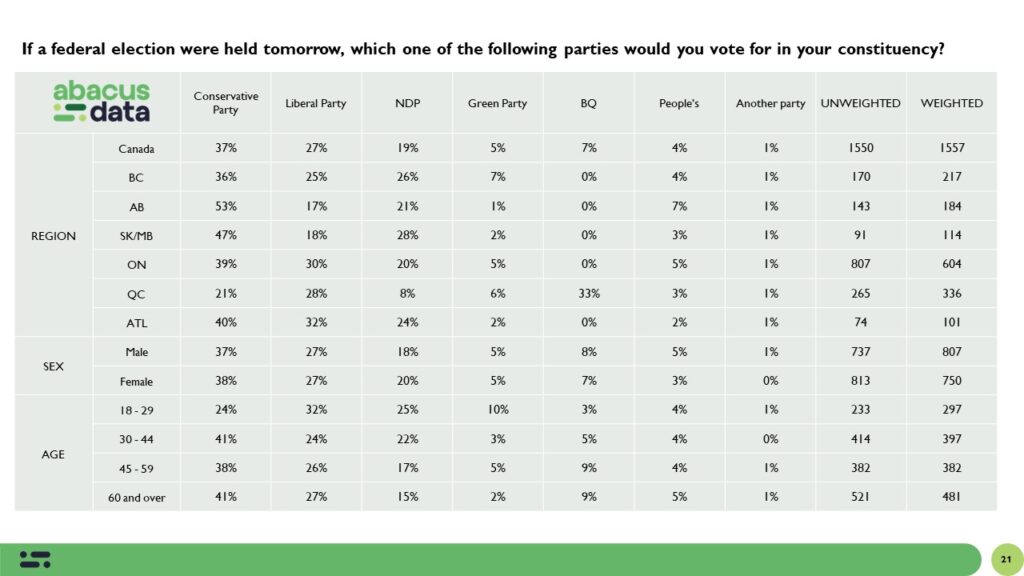
ABOUT ABACUS DATA
We are the only research and strategy firm that helps organizations respond to the disruptive risks and opportunities in a world where demographics and technology are changing more quickly than ever.
We are an innovative, fast-growing public opinion and marketing research consultancy. We use the latest technology, sound science, and deep experience to generate top-flight research-based advice to our clients. We offer global research capacity with a strong focus on customer service, attention to detail, and exceptional value.
We were one of the most accurate pollsters conducting research during the 2021 Canadian election following up on our outstanding record in 2019.
Contact us with any questions.
Find out more about how we can help your organization by downloading our corporate profile and service offering.



